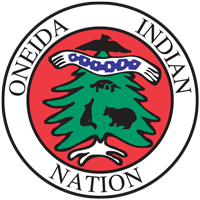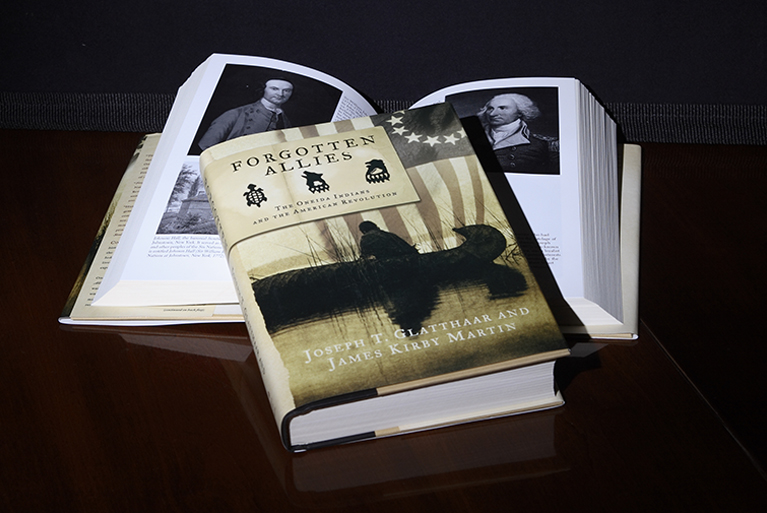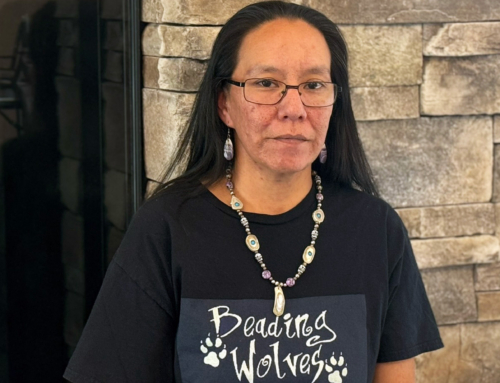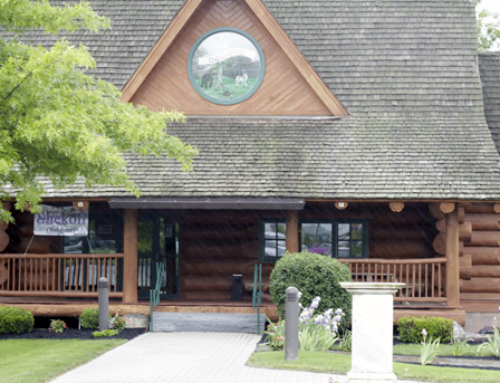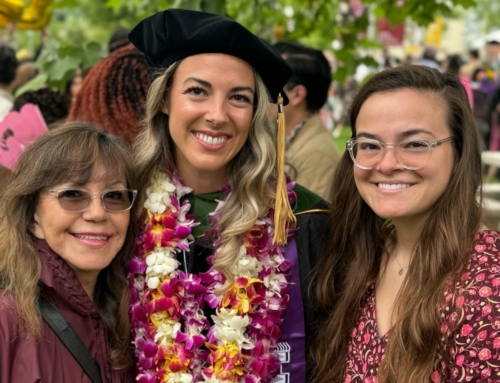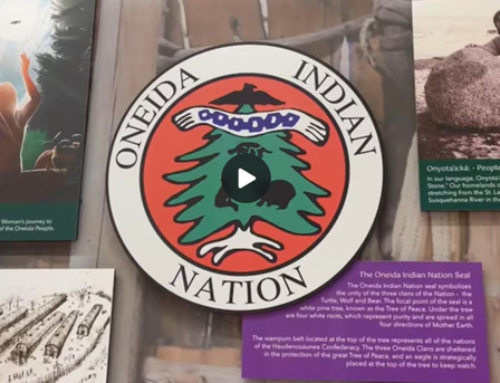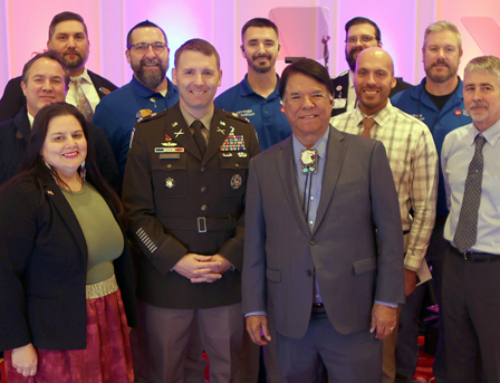When James Kirby Martin, professor of history at the University of Houston and one of the foremost authorities on the American Revolution, began to research the Oneida Indian Nation’s contributions to the War for Independence, his imagination was immediately captured by the Oneidas’ compelling story.
“What they did at the Battle of Oriskany – I would argue one of the greatest, although not well-known, battles of the Revolution – and what they did throughout the war is just an incredible story,” he said. “In the eyes of George Washington, the Oneidas were one of their very best and most reliable allies… When you enter the world of these forgotten allies, you’re going to meet some incredible human beings.”
The historian and his co-author, University of North Carolina-Chapel Hill History Professor Joseph T. Glatthaar, unveiled their book, Forgotten Allies: The Oneida Indians and the American Revolution (Hill & Wang/Farrar, Straus & Giroux, October 2006) at an Oct. 14, 2006 lecture at Mount Vernon, George Washington’s estate in northern Virginia.
Forgotten Allies begins with the return of the Marquis de Lafayette to the United States, 50 years after the Revolution, and shows how quickly the Oneidas’ involvement in the war had been forgotten. The authors describe how, although he was feted by many of his friends from the war, Lafayette expressed disappointment that he encountered none of his Oneida friends:
“He had visited Rome, then Oriskany, and now Utica, but he had not seen any of his Oneida Indian comrades from the days of the conflict, even though these towns were in the locale of what had once been the Oneida homeland. Finally, Lafayette wondered aloud to his hosts. He wanted to know if any Oneidas still resided in the area and if he might have the opportunity to visit with them.
“Lafayette’s request caught his hosts by surprise. Many of them were too young to know the Revolution intimately, even if they had heard stories about the Oneidas fighting in conjunction with the rebels during the war. The aging veterans, however, knew better, but by virtue of their selective memories about events long since past, they had more or less divested their minds of the Oneida involvement, let alone contribution. The marquis had not.
“Lafayette asked if someone among his large throng of Utica admirers could take action so that he might spend at least a few minutes conversing with these forgotten allies.”
“It’s a tale of dignity and honor, but also a sad, sad story,” Glatthaar said. “These are people who stood up for what was right, and they suffered so terribly, almost punished by the people they helped.”
Oneida Indian Nation Representative Ray Halbritter agreed that “there is an element of irony” in the Oneidas’ story but said the book is cause for celebration because it shares the Oneida story with a wide audience.
The names of Oneida heroes of the Revolution “are etched forever in our oral history, along with the spirit and sacrifice of countless others whose actions helped form this country,” Halbritter said. “They are not only Oneida patriots. They are American patriots.”
Click here to read a review by Oneida Indian Nation Member Kandice Watson.

